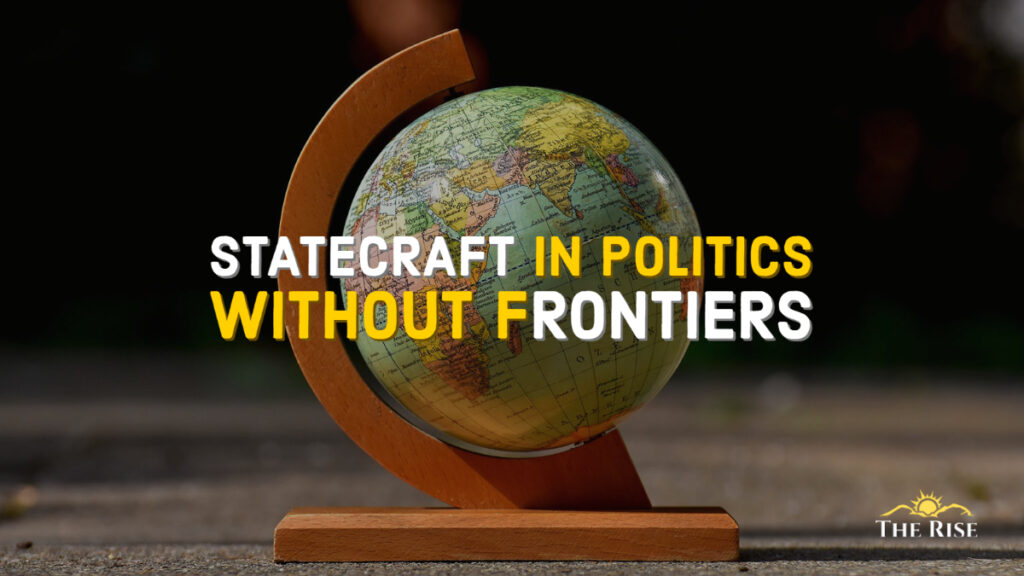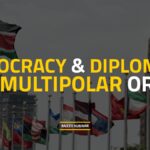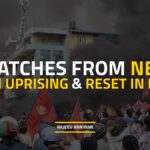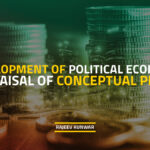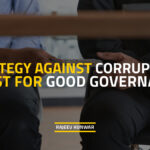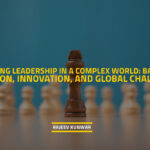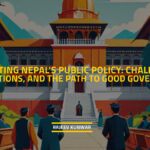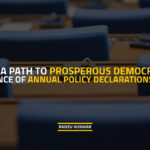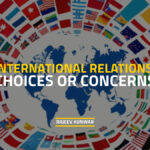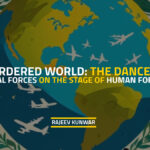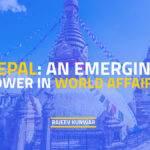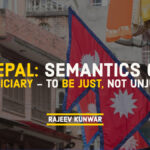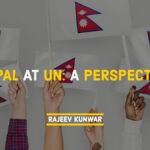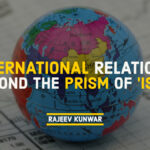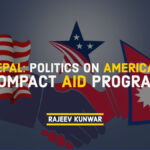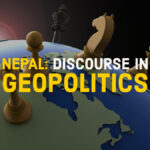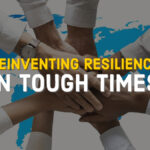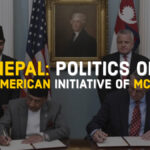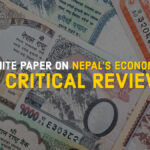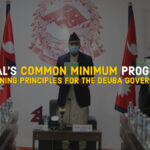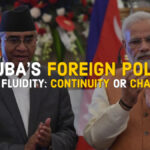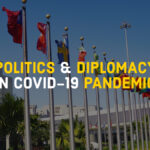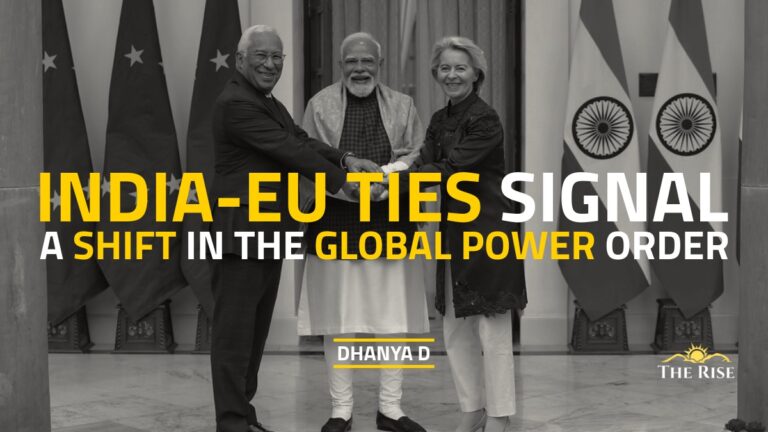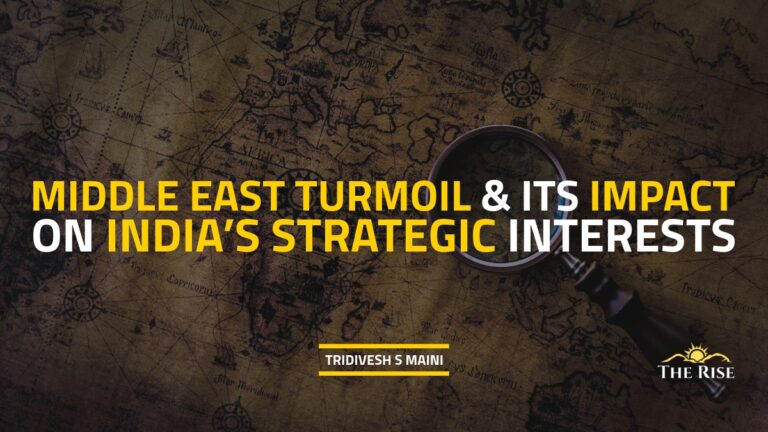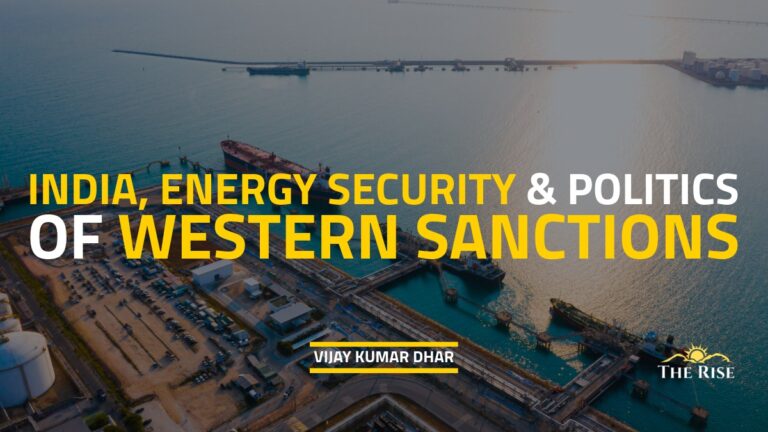The national integrity system endures to check and balance the organs of any state and, concertedly, promotes liberty, justice, and truth. It instils democratic norms and values amongst its bonafide citizens. Consequently, any statesmen would envisage executing statecraft to enliven democracy and its global appeal. Therefore, politics without frontiers has become a reality wherein knowns and unknowns are common among citizens.
International relations in the first quarter of the 21st century resemble politics without frontier. After the ‘end of history’ in 1990 and the trend of decline in a liberal democracy in the interregnum till 2000 A. D., the rise of illiberalism and populist politics preoccupy the political conduct and political affairs that is heavily mediatized by the Fourth Estate (media) and public indulgence in the social sphere discourse. Politics seems to be everything and the core of anybody’s everyday talks. However, statecraft is sorely missing in the state of affairs when transcendence is important to focus on reform, perform and transform the state apparatus. The needs of public management are felt in the backdrop of international or global policy impinging inside a political territory in an ongoing political transition.
From local, national, and regional levels to continental & international levels, the stately marathon events, and brainstorming of public policy ideas when met by actions generate leadership zeal and power in public and international affairs. In the global state of rankings, no country is similar and incomparable in the annual global index and indicators. The world is divided into 193 units as the UN member-states that are carved by borders wherein plural and diverse residents inhabit. So does their political pluralism immediately intermingle in international relations. Furthermore, changes in policies in immediate neighbouring countries influence a governmental territory one resides in.
Additionally, global public policy shapes the domestic affairs indispensably. In this lens, statecraft is the art and science of government and governance that delivers promises so far that have been made by politicians and excel in political skill to align universal principles into praxis. It covers the calculus of democratic peace, democratic power politics, and pragmatic public policy. Both hindsight and foresight allow perspicacity in approach, measures, and perspectives that ensure the trajectory of democracy, universal aspirations, and its norms & values in the 21st-century conscience.
Also Read: Beginning of a new Cold War
Everyday state of affairs overlaps national interests and international pressures to conform. Statecraft moderates the mode of intermestic (international and domestic) affairs to contain polemics or polarization of politics or extreme executive stance so as to salvage it from a failure in public affairs. The ebb and flow of the state of public and international affairs witnesses a curveball of the downbeat or upbeat of political momentum balancing reasons and emotions. Thus, we can understand half the world through learning, the other half through practice. The state of affairs synchronizes knowledge and praxis to empower body politic or citizenship. Common sense, or some say nonsense, in running the world or worldly affairs, is circumstances to adopt, adjust, and adapt (3As) changes and dynamics in a polity. This is an everlasting and perpetual phenomenon that never tires with time or temporality even if citizens feel they are immune from hoary and ruckus political affairs.
Every political event is a turning point due to the flow of forces that are determined by standpoint or certain principles or raison d’être (reason of being). When history is alive or present, the mastery of time is to acknowledge the counsel of the past, enlive the present, and secure the future that profits all and not a singular individual or institution. There can be a jubilation of triumph – personal or ideological, national or international. Nevertheless, the core conviction is to transcend the frontiers to embrace mutual and reciprocal policy vectors judiciously matching the needs of the local levels of execution. No country is immune from forces or elements both inimical and benign to its territory.
Also Read: Political Impediments to Harmony in South Asia
In this matter, a recipe in public policy is to maximize national interests. However, such policy exercises do not compromise eternal principles when converging on the global commons. Liberalism ensures cooperation, not conflict, and peace, not war, and advancing freedom or liberty instead of bondage or autocratic temptations. On the other hand, realism talks of power politics, securing interests and strengthening politics and security. An admixture of liberal realism holds these tenets as and when a situation develops or hostility subsides.
A current trend of politics evinces something missing that is not assuaging resistance or durably addressing the revolts on the streets of many cities of the world as covered in the global media. The showdown of dissenters and opposition is spontaneous or sudden. Their urge seems to be the feeling of injustice under duress of time and tough circumstances. They might feel an uncaring business as usual politics is meting out to confine them to this hapless condition. So that to eke out their living, it has become burdensome to break the circles of depravity, disparity, and disadvantageous conditions that are overlooked or unattended to. For the last five years or so, and exactly since the dawn of the New Millennium, changes in worldly affairs are pacing momentum, augmenting intelligence and overloading of information. Some are left behind and some are ahead, the divide or inequality is growing and this is accepted as a new normal when the state of affairs witness abnormal problems and challenges. Information has empowered and offered lucrative domains to outsmart each other.
Also Read: The Art of Ruling through Animosity – Humanity or Nationalism?
The art and craft of handling the state of affairs have volumes of experiences and memoirs of leaders of every polity, either from poor or affluent countries. A tale of political activism is one of struggle, survival, and chronicle of leaders – great and tall among the luminary of practitioners. They are the ones who walk the hall of fame to realize talking about changes seen or unseen in politicking. Entering corridors of power is uneasy, discomfiture, and cold-hearted unless promises kept are delivered or utmost pursued. In these interesting times, it is proactive and responsive politics that counts in maintaining good governance, stable government, and responsible evidence-based opposition.
Accordingly, the national integrity system endures to check and balance the organs of any state and, concertedly, promotes liberty, justice, and truth. It instils democratic norms and values amongst its bonafide citizens. And individuals who understand and are aligned with these principles as global citizens have inclinations to be entrusted with global responsibilities. Consequently, any statesmen would envisage executing statecraft to enliven democracy and its global appeal. Therefore, politics without frontiers has become a reality wherein knowns and unknowns are common among citizens. Additionally, the political aspirations of the Luxurious State of Plato are similar to a mercantilist policy or an economic nationalism to sustain polity’s amenities and alimentary. But, a journey towards the realization of peace, progress, and prosperity (3Ps) is mutual and reciprocates recognition, benefit, and concern in the state of public and international affairs.
You May Like: Poetry as a Tool of Dissent in Modern-Day Authoritarian Regimes
Disclaimer: The views expressed in this article are of the author solely. TheRise.co.in neither endorses nor is responsible for them.
About the author
Mr. Kunwar is a politics and international relations analyst based in Kathmandu.

